Interview: Writer/Director Melanie MacQueen on ALL THESE WOMEN
Readings at Theatre 40 on 10/19 and The Mayflower Club in NoHo on 11/3
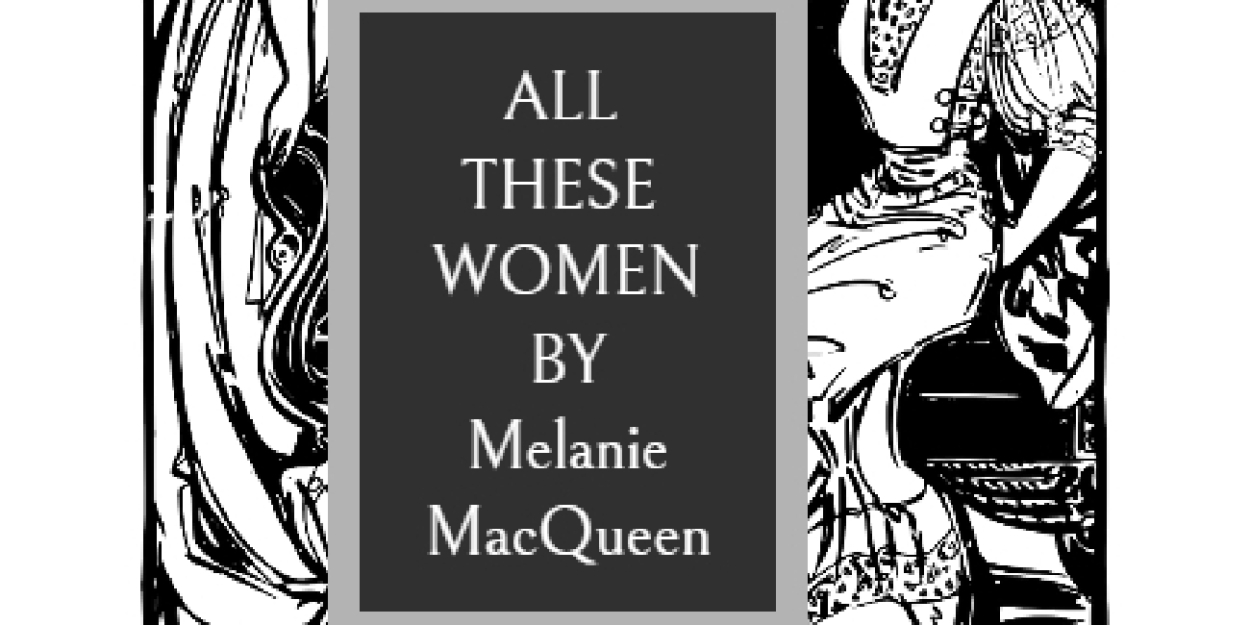
%20copy.jpg)
On October 19, Theatre 40 in Beverly Hills is presenting a reading of All These Women, written and directed by Melanie MacQueen. Centering on the newly elected president Woodrow Wilson, the story delves into how the Women’s Suffrage Parade pushed him to finally agree to Voting Rights for All.
I decided to speak with Melanie about how the play came into being, her plans to present it as a reading, and how she plans to keep presenting it in the future.
Thanks, Melanie for taking the time to speak with me today. With your varied career as a playwright, actor and director, which role do you find the most artistically pleasing for you? Why?
I prefer the role of playwright, as I have always wanted to be in charge of the Main Idea and how it is presented. But I also very much enjoy directing and acting.
Of all the plays you have directed at Theatre 40 including The Play’s the Thing, Taming the Lion, Engaging Shaw, The Drawer Boy, Months on End, On Borrowed Time, Separate Bed, The Revolutionists, and Roses in December, is there one that stands out in your mind as the most enjoyable for you to direct? Why?
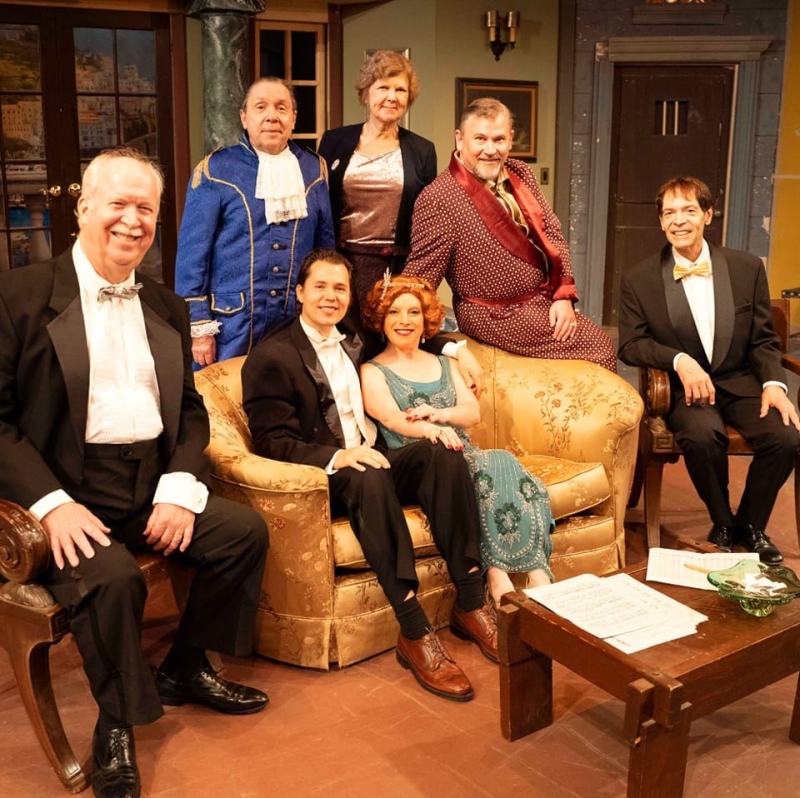
The cast of The Play's the Thing at Theatre 40.
As far as the most “enjoyable,” it was The Play’s the Thing because it was so fun and silly, and such a great escape from the stresses of the world. As far as “challenging and rewarding.” it was The Revolutionists which I found to be very timely in its discussion of the high cost of speaking truth to power.
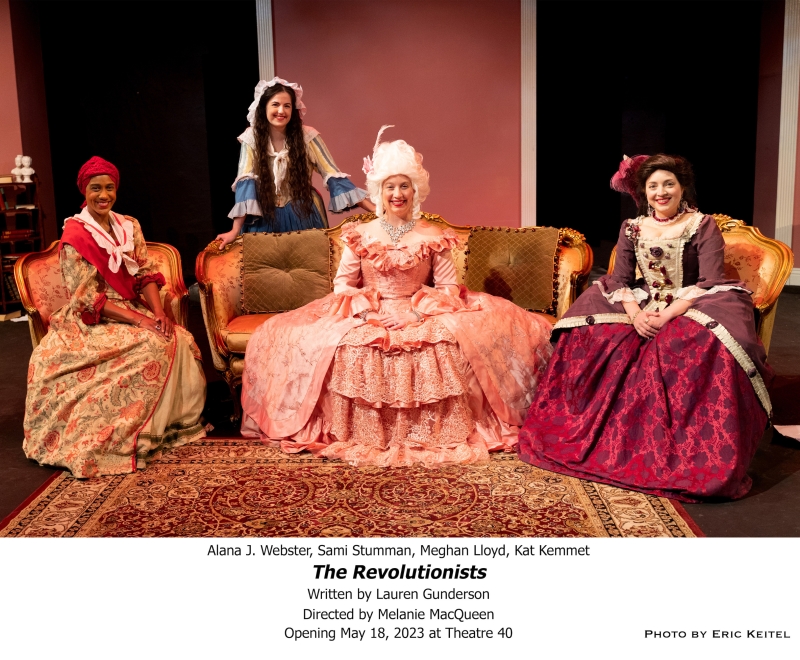
You also wrote the award-winning musical In the Name of God, or Honk If You Love Satire, which moved from the Valley to Off-Broadway. Tell me about how the journey from creation to taking the stage in New York happened.
I wrote that musical first as just the book and lyrics, but then was lucky enough to get my very talented composer friend, David Coleman, to do the music. I decided to produce it myself, because it was a musical criticizing - in a satirical way - the abuses of organized religion (of all kinds) throughout the centuries. I knew that would be next to impossible to get done unless I did it myself. We did a run at a theatre in the NoHo Theatre district, and it was luckily very positively reviewed by the LA Times and a couple of other papers. We won some Valley Theatre League Awards for it, including Best New Musical.
Unfortunately, I am not good at promoting my own work, so due to the efforts of the then-wife of Mr. Coleman, the play was also selected to be done by Painted Yellow Productions in New York. That went well also, but we never got it further along than that; a major reason being that nobody likes to do plays about religion. Remember, this was way before The Book of Mormon. It might get done now, but… I doubt it.
Why has the topic of Women’s Voting Rights always been of interest to you?
I became interested in the topic around the centennial of the Vote for Women being ratified in 1920. In 2020, we were again at a very critical election, and I did a zoom performance with many Theatre 40 actors of an adaptation of a book called The Woman’s Hour by Elaine Weiss (with her permission). Thereafter, I began to research the subject more intently, realizing that there was much about this crucial period I didn’t know.
Have you written other plays about the subject of Women’s rights and equality before?
Other than that zoom adaptation of someone else’s work - no.
%20copy.jpg)
Tell me about the storyline in All These Women.
The Woman’s Hour covers the very last part of the struggle for suffrage for women. All These Women covers that only very briefly. Instead, it concentrates on the struggle that took place as Woodrow Wilson came into office, and partly played out against the backdrop of WWI.
Describe the process you’ve taken to bring it to its first reading.
I knew I couldn’t take it further until I got it on its feet. So, I gathered several actor friends of mine to help me. And luckily, I know some very talented people. I sent most of them the script first, so they could see what they were getting into.
How did you start reaching Woodrow Wilson’s and women’s suffrage in the early 20th century?
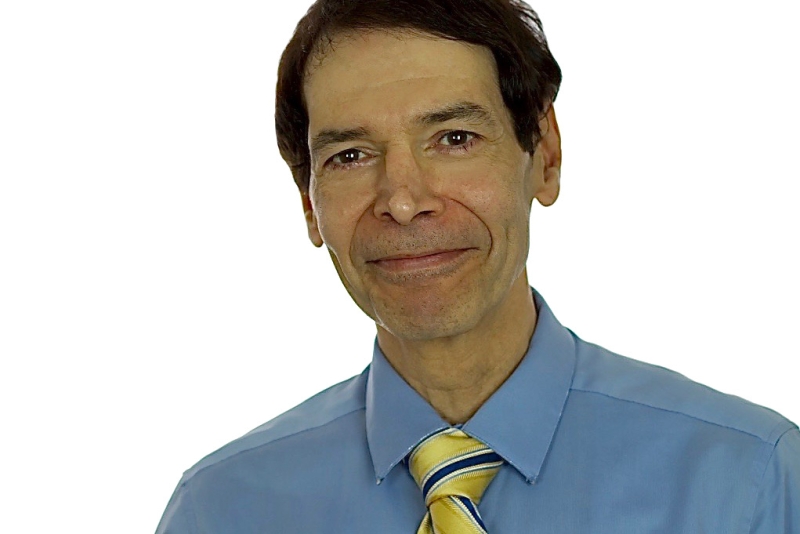
Michael Robb portrays Woodrow Wilson in All These Women
I read a great many books and articles about the various prominent people involved on both sides of the battle. That way I could decide which people should be prominent in the story - although so many women took part. It was impossible to highlight all the important players.
Why did you decide to focus on the last few years before women got the right to vote?
I found the push-pull between the more staid group (eventually) led by Carrie Catt and the Pankhurst inspired group which took more dramatic and public actions, and was led by Alice Paul, to be an interesting way to show that no group fighting for their rights ever fights in total solidarity. The push-pull between them and - somewhat in the background - the then President Woodrow Wilson was something I found to be very interesting to explore. I hoped audiences would feel likewise.
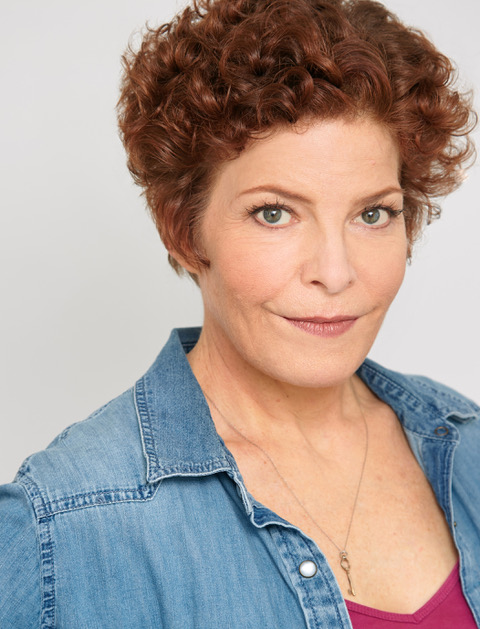
Alison Blanchard plays Carrie Catt, who took over from Anna, and conducts the rest of the fight - including the final chapter in Tennessee.
How and why do you think the Suffrage Parades across the country contributed to Wilson signing women’s voting rights into the constitution?
The suffrage parades were just one aspect of the fight. The play explores many actions taken by the women to achieve their goal. The parades were able to draw some public attention, but they also drew criticism. Carrie Catt and her NAWSA group were not always sure about that kind of attention, and it led to conflict.
What do you think will surprise audiences about the subject matter in All These Women?
Not just that the battle was so long and so hard, but that there were strong forces against woman suffrage - which were also comprised of women who didn’t want the vote, and fought against suffrage. They thought it mired women in the muck of politics, and was not womanly behavior.
The actors in the play are Todd Andrew Ball, Alison Blanchard, John Leslie, Meghan Lewis, Kristin Towers Rowles, Michele Schultz, and Holly Sidell. Tell me about the characters they play.
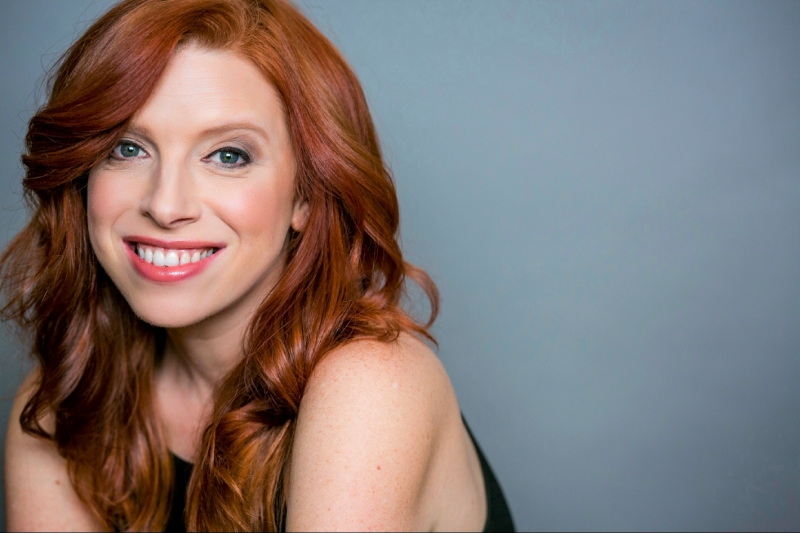
Our main focus is the character of Lucy Burns, played by Kristin Towers Rowles (pictured). She was a fiery Catholic woman, who was the right hand of Alice Paul. Lucy goes in and out of the action, conducting the audience through the ins and outs of the battle.
Holly Sidell plays Alice Paul, who was a very quiet Quaker woman who like others to take focus, but she was a force of nature herself.
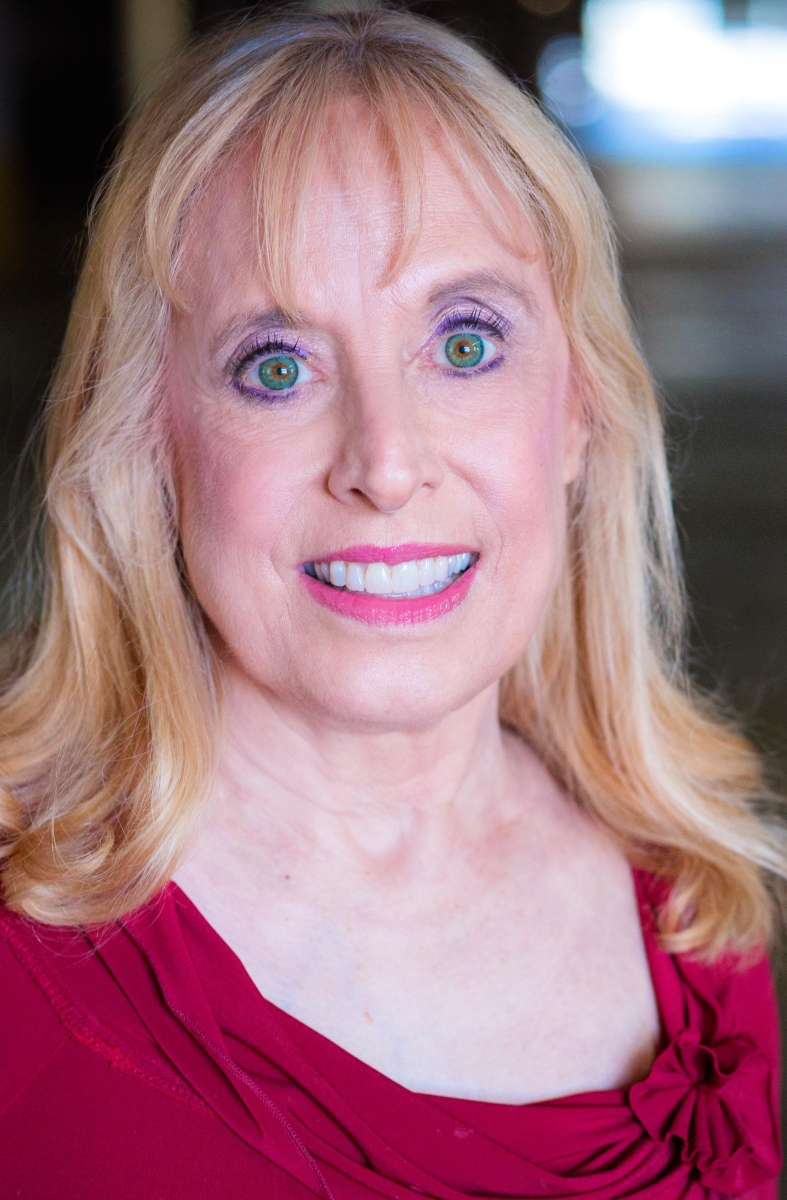
Michelle Schultz (pictured) plays Anna Shaw who took over from Susan B. Anthony, and was getting a bit tired of the whole thing as our play begins.
Alison Blanchard plays Carrie Catt, who took over from Anna, and conducts the rest of the fight - including the final chapter in Tennessee.
Michael Robb plays Woodrow Wilson, who had a lot on his plate, but had to continually confront “all these women” up in his face about woman suffrage.
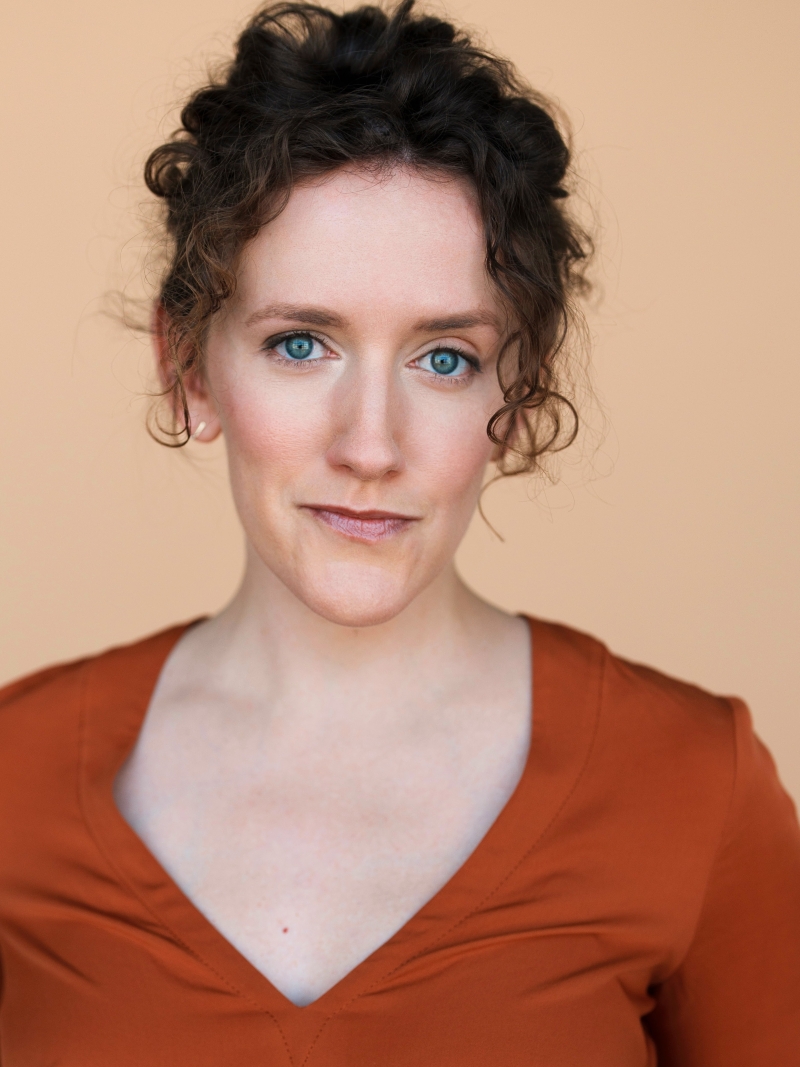
Meghan Lewis (pictured) plays Inez Milholland, a young “amazon” who leads the opening parade the play, and gave her lift to the cause, dying quite young.
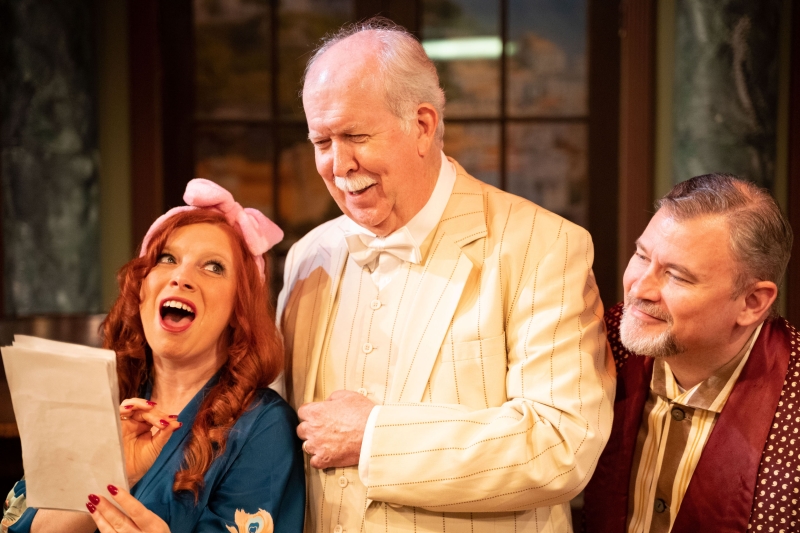
John Leslie and Todd Andrew Ball (pictured with Kristin Towers Rowles in The Play's the Thing) who both play various allies and adversaries of the women, as well as the Press covering their actions in All These Women.
Are all the actors members of Theatre 40? And if not, how did you go about holding auditions?
I didn’t audition anyone, because I was already familiar with their work. Michael Robb is the only actor who wasn’t a member when I cast the reading. But he might be a member now.
I know you have appeared onstage with Kristin in The Manor. Have you appeared on stage with or ever directed any of the others actors in the cast?
I act so seldom these days. I have acted with John Leslie many times when I was younger. I also played Alison Blanchard’s sister in an Alan Ayckbourn play, Living Together several years ago. I directed Todd Andrew Ball in The Play’s the Thing, as well as Michael Robb and Kristin in that same play.
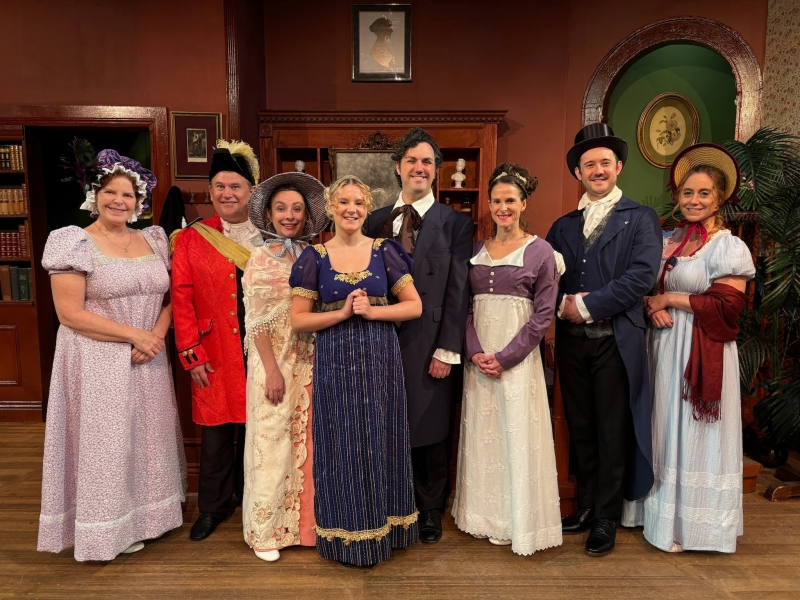
I’ve directed Holly Sidell in a Reading (pictured third from right with the cast of Jane Austen in 89 Minutes currently playing at Theatre 40) and have directed Michelle Schultz in one or more Seminar Readings.
Since I mentioned The Manor, I so enjoyed your appearance in it each year as the long-suffering wife of the ill-fated Senator (portrayed by your real-life husband John Leslie who is in the cast of All These Women) who drafted the real Doheny oil tycoon into the Teapot Dome Scandal. Since she always did her best to stand by his side no matter the consequences of his actions, how did playing her teach you about why it is important for women to speak up for what’s right in their own opinion?
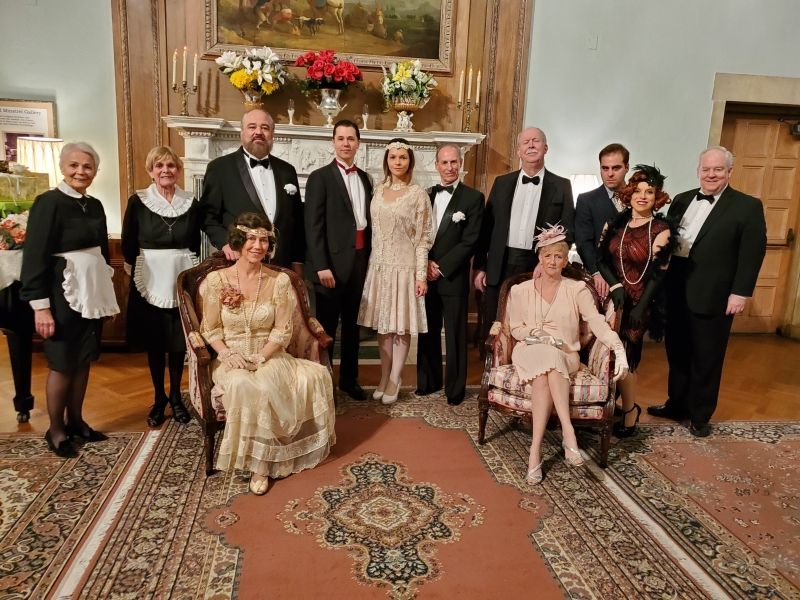
The cast of The Manor by Theatre 40 at Greystone Mansion.
Women have been raised - at least in my generation - to “stand by your man.” Laudable sentiments unless your man decides to do despicable things. I think the vows of marriage don’t extend that far.
Nor do I. Do you consider that role your favorite to play? Or are there others that also fit into that category?
I very much enjoyed that role, but I have others I liked better. I played Annie Sullivan in The Miracle Worker. That was one I loved. I have many others I very much enjoyed. I did Alma in Eccentricities of a Nightingale and I adored doing Emily Dickinson in The Belle of Amherst.
It was just announced that All These Women will have an additional reading in the Valley. What led to that decision?
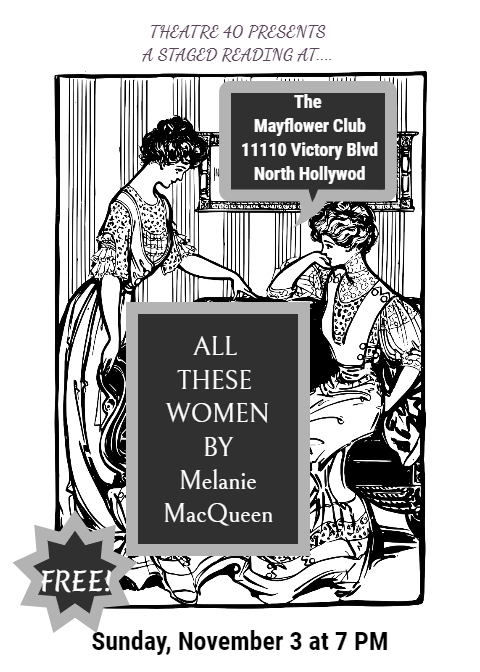
There were various people who can’t make the Theatre 40 Reading, and I am happy to get it up in front of a different group to gauge various reactions.
Are plans in the works to take it elsewhere in the future?
I fully intend for it to get produced, even if I have to do it myself. After all, I’ve done that before with fairly good results. But I especially would like it to be done in educational settings, as I think we don’t educate our young people about their history. In fact, we seem to fear letting them know the “warts and all” aspects of our struggles for rights for everyone. And those rights are currently threatened, and they are hard won. This play makes that clear.
What else is on the horizon for you as a playwright, director, or actor?
More writing, and, if need be, producing. I’m done sticking things in a drawer. I also believe, unless it has to change, that I will be directing another show at Theatre 40 in 2025. But our schedule is in flux right now, so I’m not sure about it to say more now.
Anything else you’d like to add about All These Women or yourself?
I have found since I “retired” that I am not all that retired. Ha!
Funny how that seems to work out for many of us. Thanks again!
* * * * *
A staged reading of the new play All These Women, written and directed by Melanie MacQueen, is being presented by Theatre 40 on Saturday, October 19, 2024 at 2:00 p.m. in the Mary Levin Cutler Theatre, on the campus of Beverly Hills High School at 241 S, Moreno Drive, Beverly Hills, CA 90212. Free parking is available in the parking lot adjacent to the theatre by entering through the driveway at the intersection of Durant and Moreno Drives. Admission is $10 at the door.
A second staged reading will take place on Sunday, November 3 at 7pm at The Mayflower Club, 11110 Victory Blvd. in North Hollywood. Free to attend.
For more information on both readings, visit http://theatre40.org
Comments
Videos

